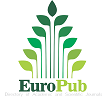The influence of relativism on the understanding of the human species in relation to social and technoscientific research as a bioethical problem
Abstract
Postmodernity has been characterized by the constant use of relativism to be able to modify and re-signify every concrete and objective concept that is related to the human species. The identity crisis through the adoption of ideologies, materialism, the loss of deontological sense and human dignity are symbiotically related to the cultural, philosophical, social and techno-scientific problem that brings with it the relativization of concepts that are analyzed in the social research today and impact the bioethical understanding of human beings.
Understanding the postmodern subject and the relativism that permeates it allows the philosopher, the anthropologist, the bioethicist, the political scientist, the sociologist, the psychologist, among others, to consider as a factor the problem that a relativist perspective raises in a materialist, individualist context and reification of the human species in the different areas of social research.
Not all relativism is harmful, but there is one in particular that attracts the masses of postmodern subjects and that concerns a greater ideological, deontological and social crisis today: Second-Order Relativism as a bioethical problem.
Downloads
References
Cabruja, T., Iñiguez, L. & Vázquez, F. (2000). Como construimos el mundo: Relativismo, espacios de relación y narratividad. Anàlisi: Quaderns de comunicació i cultura. (25), 61-94.
Cañas-Fernández , J. L. (2010). De la deshumanización a la rehumanización. El reto de volver a ser persona. Pensamiento y Cultura, 13(1), 67-79. https://doi.org/10.5294/pecu.2010.13.1.5
De Azcárate, P. (1875). Obras filosóficas de Aristóteles. Madrid. (10) IV. Obtenido de https://www.filosofia.org/cla/ari/azcarate.htm
De Souza, M. G. (2020). Posmodernismo y teoría de la historia: el relativismo revisitado. Trilhas de Historia, 10(18), 33-42. https://goo.su/9X4XVGj
Derrida, J. (1978). De la gramatología. Ciudad de Mexico: Siglo XXI Editores Mexico.
Fernández, C. (2006). Sexualidad y bioética la problemática del transexualismo. Foro Jurídico, (5), 53-67. https://goo.su/rXLUY
Gamboa-Bernal, G. A. (2014). Biofamilia: campo poco explorado en bioética. Persona y Bioética, 18(2), 101-106. https://doi.org/10.5294/pebi.2014.18.2.1
Gamboa-Bernal, G. A. (2024). Ética de la investigación y de la publicación científica: reto y propuesta para científicos y editores. Revista colombiana de bioética, 19(1), 1-15. https://doi.org/10.18270/rcb.v19i1.4222
Gómez, N. (2009). Escolios a un texto implicito. Atalanta. (Trabajo original publicado ca. 1977).
Goya, P. & Salas, M. L. (2015). Ética en la investigación: buenas practicas cientificas. Anales De Química, 111(4), 212 -217. https://goo.su/X2Qrx8k
Harari, Y. N. (2019). Homo Deus: Breve historia del mañana. Debate.
Hernández, L. H. (2021). Las dos caras del relativismo: crítica al fundacionismo e imagen relativista de la ciencia. Praxis Filosófica, 52, 119-144. https://doi.org/10.25100/pfilosofica.v0i52.10681
Herrera-Pérez, E. I. (2022). Dignidad y eugenesia genética: a propósito del uso del CRISPR-Cas en embriones humanos. Persona y Bioética, 26(1), 1 - 12. https://doi.org/10.5294/pebi.2022.26.1.8
Huxley, A. (2013). Un Mundo Feliz. Debolsillo. (Trabajo original publicado en 1932).
Kottow, M. (2005). Bioética y biopolítica. Revista Brasileira De Bioética, 1(2). https://doi.org/10.26512/rbb.v1i2.8065
Laje, A. (2023). Generación idiota: Una crítica al adolescentrismo. Harper Collins.
Lewis , C. S. (2016). La Abolición del hombre. Harper Collins. (Trabajo original publicado en 1943).
López-Ibor, B. (2020). Bioética clínica: la mujer ante los retos de la bioética clínica actual. Apuntes de bioética, 3(2), 39-47. https://doi.org/10.35383/apuntes.v3i2.497
Lyotard, J. F. (1984). La condición postmoderna. Cátedra.
Mansilla-Ferret-d’Arau, H. C. F. A. (2023). Las insuficiencias del relativismo radical y el potencial del relativismo moderado. Cambios y Permanencias, 12(1), 29-141. https://doi.org/10.18273/cyp.v14n1-202308
Misseri, L. E. (2023). “El relativismo metaético: argumentos a favor y en contra”. En G. Lariguet (dir.). La metaética puesta a punto (pp. 128-140). Ediciones UNL. https://goo.su/LFiyZQ
Moreland, J. P. & Craig, W. (2018). Fundamentos filosóficos para una cosmovisón cristiana. Kerigma.
Nakama-Hokamura, G. K., & Rojas-Valdez, K. (2023). Naturaleza y persona humana: bases críticas de la pretensión transhumanista. Apuntes de Bioética, 6(2), 5 - 29. https://doi.org/10.35383/apuntes.v6i2.981
Narbona, R. (2021). El conservadurismo según Roger Scruton. Revista de Libros.
Piedrahita, O. A. (2020). Relativismo epistémico y circularidad. Discusiones Filosóficas, 21(36), 25–37. https://doi.org/10.17151/difil.2020.21.36.3
Rorty, R. (1979). La filosofía y el espejo de la naturaleza. Catedra.
Santome-Sánchez, A. A. (2021). ¿Hacia dónde vamos? El pensamiento postmoderno y su influencia en los conflictos o dilemas bioéticos y biojurídicos. Apuntes De Bioética, 4(2), 172-191. https://doi.org/10.35383/apuntes.v4i2.700
Soria, C. (2022). La pandemia del relativismo: un obstáculo para la educación moral y científica. Revista Panamericana de Pedagogía, 35, 23 -33. https://doi.org/10.21555/rpp.v35i35.2627
Tatulyan, M. (2021). La Singularidad Radical: Ensayo sobre los Fenómenos Singulares. Experimenta.
Tillería, L. (2022). Transhumanismo e inteligencia artifical: El problema de un límite ontológico. Griot: Revista de Filosofia, 22(1), 59 - 67. https://doi.org/10.31977/grirfi.v22i1.2539
Zimmerling, R. (1990). Necesidades básicas y relativismo moral. DOXA. Cuadernos De Filosofía Del Derecho, (7), 35–54. https://doi.org/10.14198/DOXA1990.7.02
Copyright (c) 2024 Joan Contreras Calderón (Autor/a)

This work is licensed under a Creative Commons Attribution 4.0 International License.
The authors retain copyright.
This work is under international license Creative Commons Attribution 4.0.
The articles published by the scientific journal "Notes on Bioethics" of the Universidad Catolica Santo Toribio de Mogrovejo, Chiclayo Peru, can be shared through the international public license Creative Commons Attribution CC BY 4.0
























 LIBRARY USAT
LIBRARY USAT